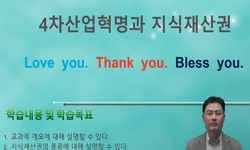법률은 탄생(제정)과 성장(개정) 및 소멸(폐지)의 단계를 거치게 되는데, 법률의 개정은 국민의 재산권에 변동을 일으킨다. 법률이 개정되면 개정 전·후의 법률조항 중 어느 것이 적용되는가...
http://chineseinput.net/에서 pinyin(병음)방식으로 중국어를 변환할 수 있습니다.
변환된 중국어를 복사하여 사용하시면 됩니다.
- 中文 을 입력하시려면 zhongwen을 입력하시고 space를누르시면됩니다.
- 北京 을 입력하시려면 beijing을 입력하시고 space를 누르시면 됩니다.
https://www.riss.kr/link?id=A107180238
- 저자
- 발행기관
- 학술지명
- 권호사항
-
발행연도
2008
-
작성언어
Korean
-
주제어
법률의 개정 ; 일부개정 ; 재산권 ; 재판의 전제성 ; 전부개정 ; General Revision ; Partial Revision ; Prerequisite to a Trial ; Property right ; Revision of Law
-
등재정보
KCI등재
-
자료형태
학술저널
- 발행기관 URL
-
수록면
31-53(23쪽)
-
KCI 피인용횟수
0
- 제공처
- 소장기관
-
0
상세조회 -
0
다운로드
부가정보
국문 초록 (Abstract)
법률은 탄생(제정)과 성장(개정) 및 소멸(폐지)의 단계를 거치게 되는데, 법률의 개정은 국민의 재산권에 변동을 일으킨다. 법률이 개정되면 개정 전·후의 법률조항 중 어느 것이 적용되는가의 문제와 개정 전 법률조항의 적용에 의하여 발생한 효력이 개정 후에도 존속하는지의 문제가 발생하는데, 전자는 법률의 개정이 갖는 의미와 관련이 있다. 법률의 개정에는 일부개정과 전부개정의 두 가지 형태가 있는데, 일반적으로 변경되는 조문의 수가 전체 조문의 2/3 이상이면 전부개정의 형태를 취하고, 그렇지 않은 경우에는 일부개정의 형태를 취하기 때문에 전부개정이 항상 법률내용 전부의 변경을 의미하지는 않으며, 전부개정과 일부개정은 개정되는 내용의 양에 의한 구분에 불과하여 둘 사이에 질적인 차이가 있는 것이 아니다. 법률이 개정된 경우 개정법률에 의해 법률 전체가 개정된 것으로 보는 견해가 있을 수 있으나, 개정법률에 의하여 기존의 법률 자체가 변경된 것으로 볼 수는 없고, 개정 전의 법률과 이를 개정하는 법률은 독립된 별개의 법률이므로 법률 중 개정되지 아니한 부분은 개정법률이 시행되었다고 하여 어떠한 영향을 받는 것이 아니다. 따라서 개정되지 아니한 부분에 대하여는 개정 전·후의 법률 또는 신·구법의 개념이 있을 수 없고, 개정되지 아니한 부분은 개정법률의 시행과 상관없이 기존의 법률에 의해 정해진 대로 그대로 존속할 뿐이다. 법률을 개정하면서 경과규정을 둔 경우에는 그 경과규정에 의하여, 경과규정을 두지 아니한 경우에는 해석에 의하여 개정 전 법률에 의해 발생한 효력의 존속 여부가 결정된다. 과도한 재산권제한의 위헌성을 문제 삼으며 제기한 금전보상 청구사건에서 정당한 보상조치가 수반되지 아니한 재산권제한 규정이 재판의 전제성을 갖느냐에 관하여 헌법재판소는 재판의 전제성을 인정하고 있다. 그런데 재산권을 제한하는 법률규정에 근거하여 행정청이 처분(예; 개발제한구역지정 처분)을 한 후에 그 법률이 개정되어 재산권제한 규정은 변동 없이 존속하지만 종전에는 없던 새로운 보상조치(예; 매수청구권)가 신설되었을 경우에, 재산권제한 처분을 받은 자가 과도한 재산권제한의 위헌성을 문제 삼으며 제기한 금전보상 청구사건에서 법률개정으로 변경된 바가 없는 구법의 재산권제한 규정(즉, 처분의 근거조항)의 위헌 여부를 다투었을 때 그 구법의 재산권제한 처분의 근거조항이 재판의 전제성을 갖는지가 문제된다. 이 경우 구법의 재산권제한 규정에 대하여 재판의 전제성을 인정하는 견해와 부정하는 견해가 있다. 그러나 재산권제한의 근거 조항은 개정의 대상이 아니어서 법률의 개정으로 변경되지 아니한 채 개정 전·후에 걸쳐 변동없이 존속하고 있으므로 그 조항에 대하여 신·구법의 개념을 적용할 수는 없고, 그 조항에 대하여 재판의 전제성을 논하면서 전제성을 갖는 것이 구법상의 조항인지 신법상의 조항인지를 따지는 것은 타당하지 않다. 다만, 법률이 일부라도 개정되면 개정의 대상이 아닌 법률조항에도 신·구법의 개념이 생긴다고 보는 경우에는 구법의 재산권제한 근거조항이 재판의 전제성 요건을 충족한다고 보아야 한다.
다국어 초록 (Multilingual Abstract)
The law goes through birth (enactment), growth (revision), to death (abrogation). The revision of the law affects the property right of the people. Once the law is revised, the issue is to decide which law shall be applied for a trial, the pre-revisio...
The law goes through birth (enactment), growth (revision), to death (abrogation). The revision of the law affects the property right of the people. Once the law is revised, the issue is to decide which law shall be applied for a trial, the pre-revision law or the post-revision law. And the following issue is whether to hold the efficacy of the pre-revision law after the revision. The first issue is closely related to the meaning of the law revision. The revision of the law can be classified into the partial and the general revision. If the revision of articles in the law accounts for over 2/3 in total, it is stated as the general revision. And if it is less than 2/3, it is as the partial revision. Therefore, the general revision is not the changes of all articles in the law. The classification shows only quantitative difference, not qualitative. There is an opinion that once the law is partially revised, the whole of law should be regarded as completely new one. However, it is rational to point out that the post-revision law shall not replace the pre-revision law. Rather, since the pre-revision law and the law to revise it are separate, the part of old law which is not under the revision shall not be affected by the revision. In the strict sense, as the part of law not within the scope of the revision cannot be classified into pre- and post-revision law or old- and new-law, it continues to effectuate as it has been. In case where the post-revision law institutes a transitional provision, it determines the continuance of efficacy of the pre-revision law. When there is no such transitional provision, the interpretation of the law determines whether or not to continue the efficacy of the pre-revision law. It is agreed that when the monetary claim is filed for the unconstitutionality of excessive restriction on property right, the restriction article without compensation on the property right is well recognized to be prerequisite to a trial. However, opinions are divided into the case where the property act is revised to include new article of redemption measures (ex. right to request purchase) after the administrative authorities issued a disposition (ex. disposition of development restriction zone i.e. green belt) pursuant to the restriction article of the property act, and the person who is rendered of the restriction order files a monetary claim on the ground of unconstitutionality of the restriction article on the property right which is not within the scope of revision. In this case, some argues that the restriction article of the pre-revision act shall be prerequisite to a trial, while others insist on that of the post-revision act be prerequisite to. But given that the restriction article of the property act continues to exist without revision as it has been, it is deemed to be inappropriate to classify pre-revision act and post-revision act for the unrevised restriction article. Provided, however, that the restriction article should be differentiated between pre-revision and post-revision by the revision, it is deemed to be rational that the restriction article of the pre-revision act is prerequisite to a trial.
목차 (Table of Contents)
- 〈국문초록〉
- Ⅰ. 들어가는 말
- Ⅱ. 법률의 개정
- Ⅲ. 법률의 개정에 따른 기존 법률관계의 효력
- Ⅳ. 신법 시행 후 신법 적용의 문제
- 〈국문초록〉
- Ⅰ. 들어가는 말
- Ⅱ. 법률의 개정
- Ⅲ. 법률의 개정에 따른 기존 법률관계의 효력
- Ⅳ. 신법 시행 후 신법 적용의 문제
- Ⅴ. 헌법소원에서 구법이 재판의 전제성을 충족하는지 여부
- Ⅵ. 맺는 말
- 참고문헌
- 〈Abstract〉
참고문헌 (Reference)
1 헌법재판소, "선고 99헌바110 결정"
2 헌법재판소, "선고 97헌바26 결정"
3 대법원, "선고 86누63 판결"
4 대법원, "선고 83누383 판결"
5 대법원, "선고 82누1 판결"
1 헌법재판소, "선고 99헌바110 결정"
2 헌법재판소, "선고 97헌바26 결정"
3 대법원, "선고 86누63 판결"
4 대법원, "선고 83누383 판결"
5 대법원, "선고 82누1 판결"
동일학술지(권/호) 다른 논문
-
물가변동과 국제적 자본이동의 (헌)법적 문제 - 통화정책과 환율정책 및 외환정책을 중심으로
- 한국공법학회
- 은숭표(Eun Soong-Pyo)
- 2008
- KCI등재
-
- 한국공법학회
- 김경제(Kim Kyong Je)
- 2008
- KCI등재
-
- 한국공법학회
- 박상철(Park Sang-Chul)
- 2008
- KCI등재
-
젠더구분에 근거한 차별의 합헌성심사 - 미연방대법원판례분석을 중심으로
- 한국공법학회
- 석인선(Seok In-Sun)
- 2008
- KCI등재
분석정보
인용정보 인용지수 설명보기
학술지 이력
| 연월일 | 이력구분 | 이력상세 | 등재구분 |
|---|---|---|---|
| 2022 | 평가예정 | 계속평가 신청대상 (등재유지) | |
| 2017-01-01 | 평가 | 우수등재학술지 선정 (계속평가) | |
| 2013-01-01 | 평가 | 등재학술지 유지 (등재유지) |  |
| 2010-01-01 | 평가 | 등재학술지 유지 (등재유지) |  |
| 2007-01-01 | 평가 | 등재학술지 선정 (등재후보2차) |  |
| 2006-01-01 | 평가 | 등재후보 1차 PASS (등재후보1차) |  |
| 2005-01-01 | 평가 | 등재후보학술지 유지 (등재후보2차) |  |
| 2004-01-01 | 평가 | 등재후보 1차 PASS (등재후보1차) |  |
| 2003-01-01 | 평가 | 등재후보학술지 유지 (등재후보1차) |  |
| 2002-01-01 | 평가 | 등재후보학술지 유지 (등재후보1차) |  |
| 2000-01-01 | 평가 | 등재후보학술지 선정 (신규평가) |  |
학술지 인용정보
| 기준연도 | WOS-KCI 통합IF(2년) | KCIF(2년) | KCIF(3년) |
|---|---|---|---|
| 2016 | 1.08 | 1.08 | 1.06 |
| KCIF(4년) | KCIF(5년) | 중심성지수(3년) | 즉시성지수 |
| 1.04 | 0.96 | 1.025 | 0.31 |




 DBpia
DBpia







